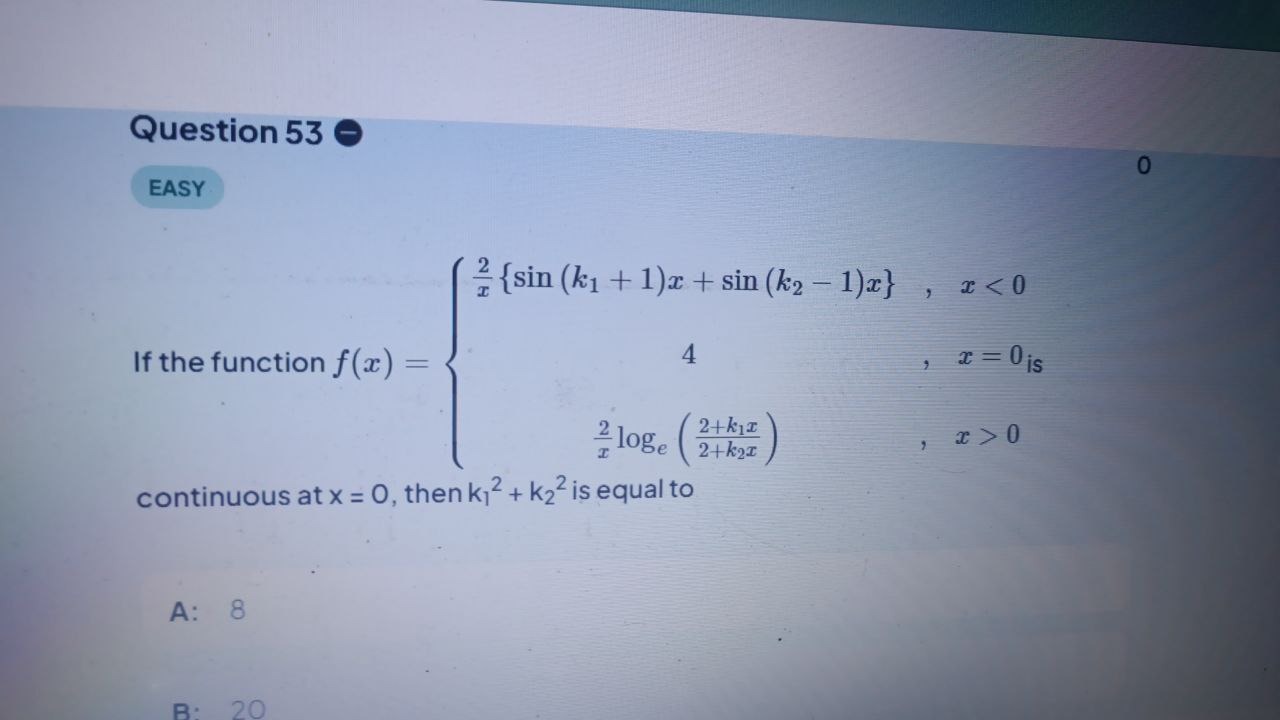Question
Question: If the function $f(x) = \begin{cases} \frac{2}{x}\{\sin{(k_1+1)x} + \sin{(k_2-1)x}\} &, x<0 \\ 4 &, ...
If the function f(x)=⎩⎨⎧x2{sin(k1+1)x+sin(k2−1)x}4x2loge(2+k2x2+k1x),x<0,x=0is,x>0
continuous at x=0, then k12+k22 is equal to

A
8
B
20
Answer
10
Explanation
Solution
For continuity at x = 0, the left‐limit, right‐limit, and f(0) must be equal.
- For x < 0:
f(x)=x2[sin((k1+1)x)+sin((k2−1)x)]
Using sin(ax)≈ax for small x,
sin((k1+1)x)+sin((k2−1)x)≈(k1+1)x+(k2−1)x=(k1+k2)x.
Thus,
limx→0−f(x)=x2(k1+k2)x=2(k1+k2).
For continuity, set
2(k1+k2)=4⇒k1+k2=2.(1)
- For x > 0:
f(x)=x2ln(2+k2x2+k1x).
Expand for small x:
ln(2+kx)=ln2+2kx+O(x2).
Therefore,
ln(2+k2x2+k1x)≈(2k1−2k2)x=2k1−k2x.
Now,
limx→0+f(x)=x2⋅2k1−k2x=k1−k2.
For continuity at x = 0, we require
k1−k2=4.(2)
- Solve the system (1) & (2):
{k1+k2=2,k1−k2=4.
Adding,
2k1=6⇒k1=3.
Then from (1),
k2=2−k1=2−3=−1.
- Compute k12+k22:
k12+k22=32+(−1)2=9+1=10.
